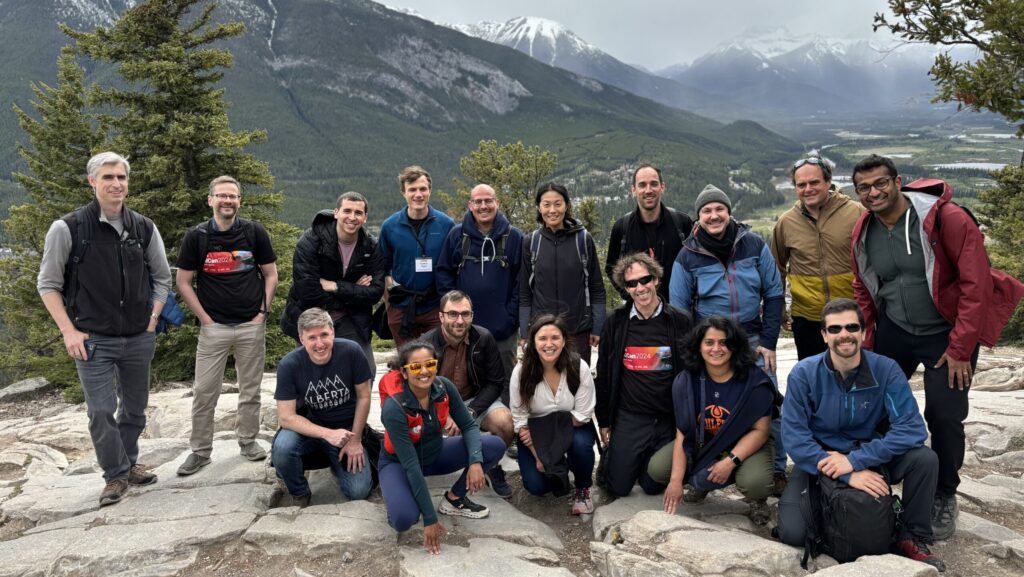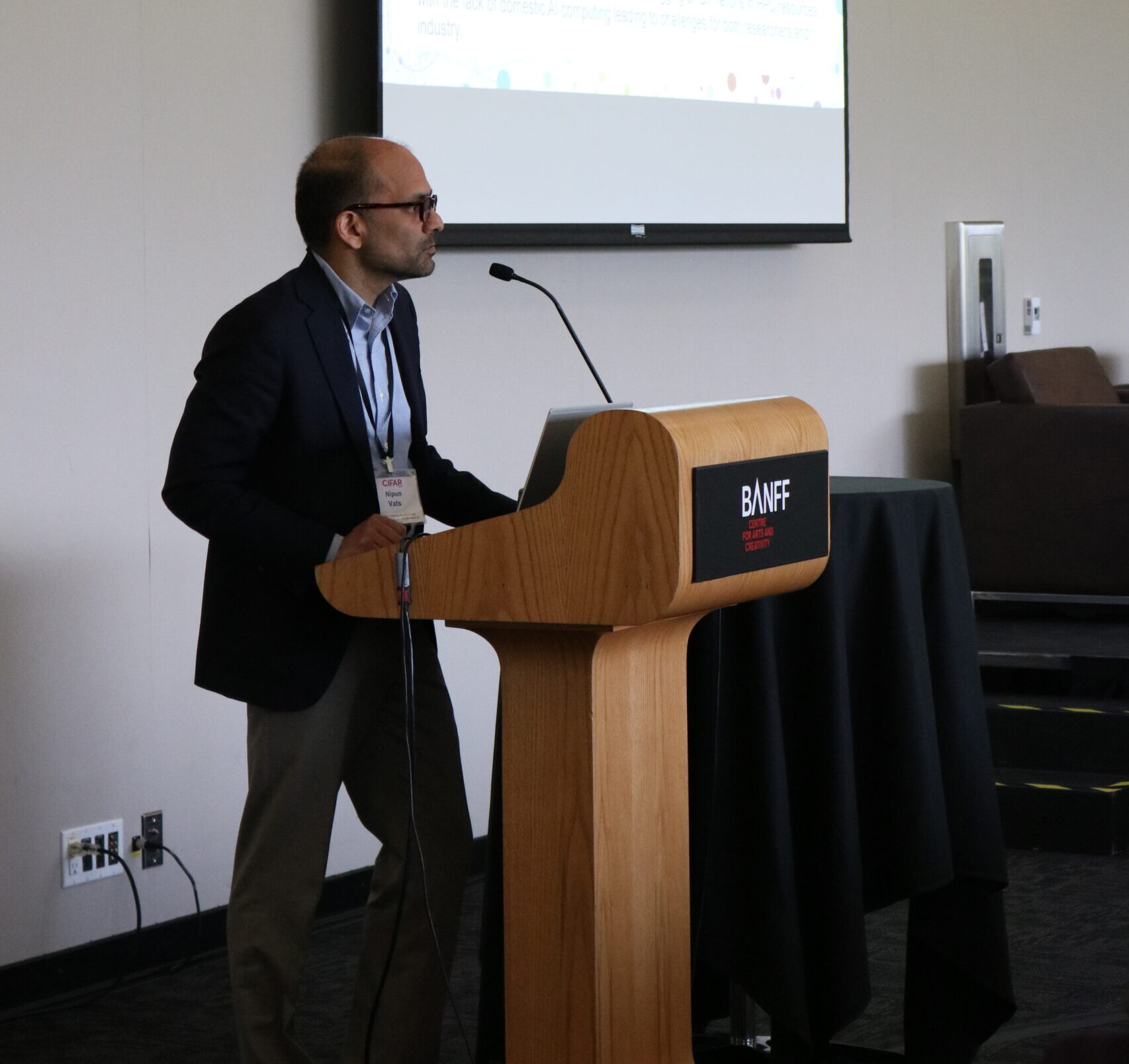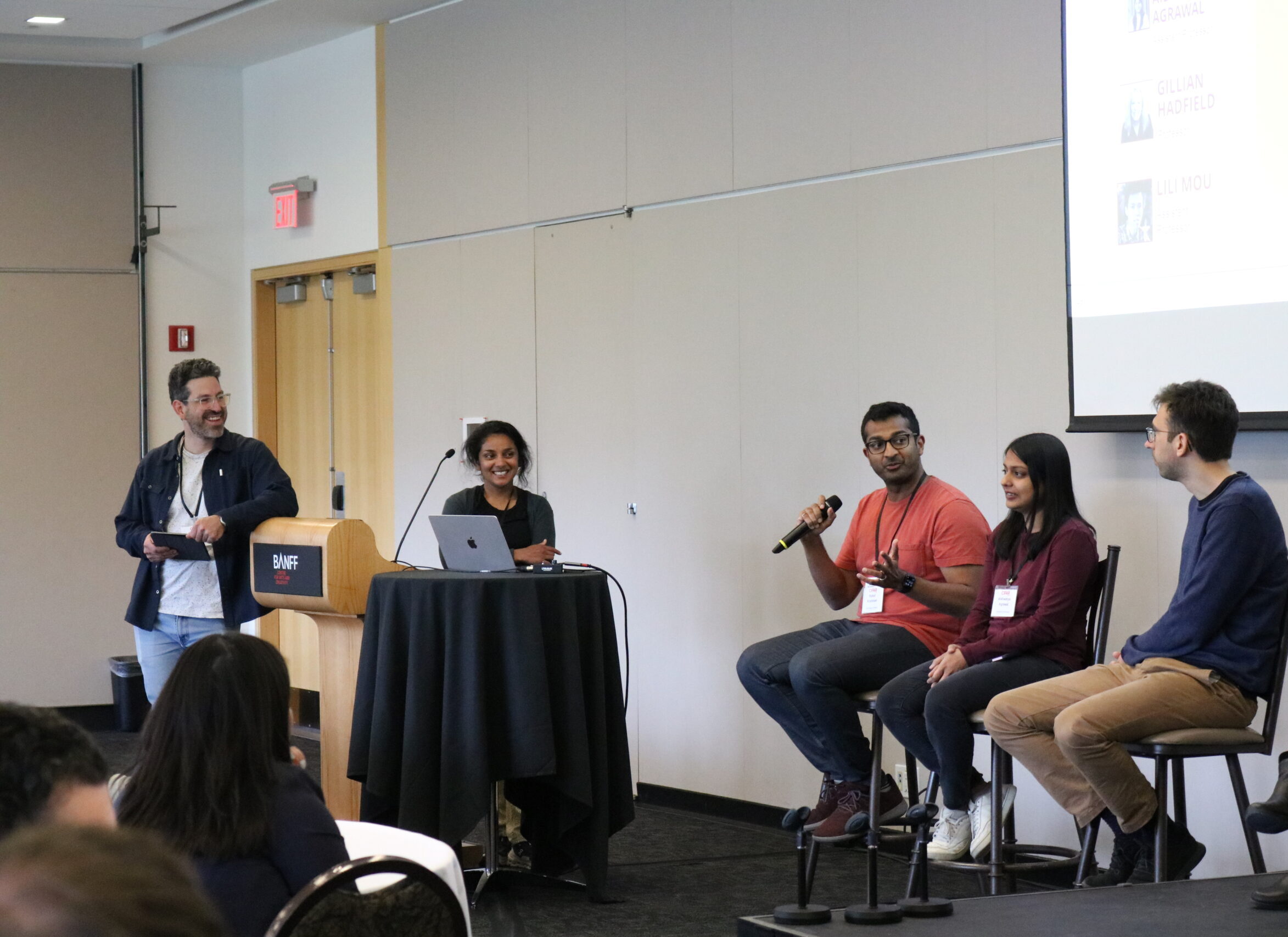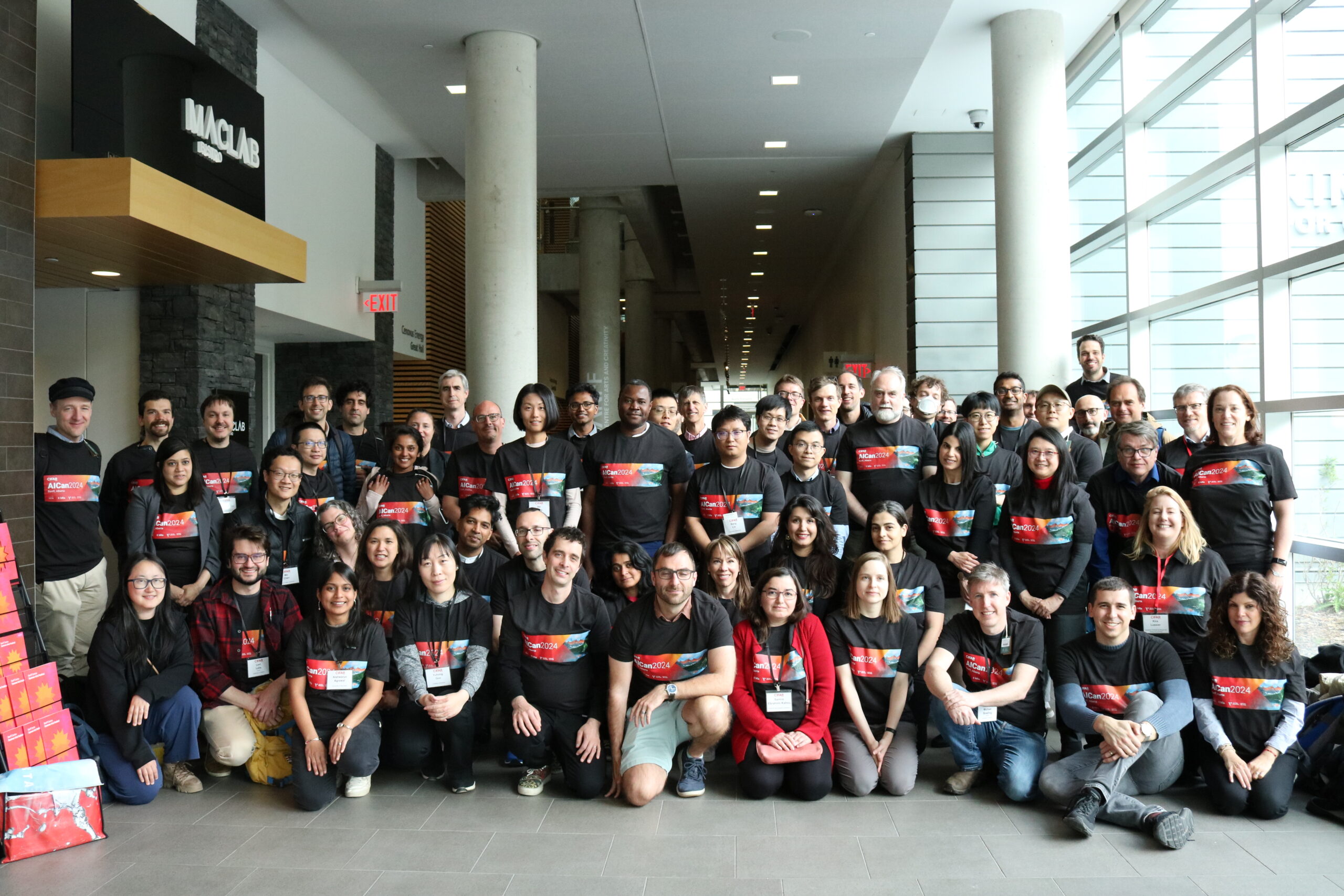By: Justine Brooks
20 Jun, 2024

CIFAR’s annual AICan conference brings together the Canada CIFAR AI Chairs — some of the top AI researchers in Canada, affiliated with our three National AI Institutes, Amii, Mila and Vector — for intensive days of networking, collaboration and strategic discussions.
AICan 2024 opened with two roundtable discussions with Nipun Vats, Assistant Deputy Minister at Innovation, Science and Economic Development Canada. Vats provided updates and answered questions on the recently announced $2.4 billion in Federal funding for Canada’s AI ecosystem, in particular, for compute capacity and the creation of a Canadian AI Safety Institute. Chairs provided their expert feedback, comments and suggestions on how best to implement a national compute strategy and capitalize on Canada’s strengths and opportunities in ensuring AI safety on the global stage.

Also featured was a panel discussion organized by three Canada CIFAR AI Chairs, Dhanya Sridhar and Guillaume Lajoie of Mila and Rahul Krishnan of the Vector Institute, with additional participants from all three institutes. The panel and Q&A session delved into issues around large language-like models, robustness and their connections to causality. In particular, they touched on strategies to create AI models that are more robust and versatile.

Shakir Mohammed, Chair of CIFAR’s International Scientific Advisory Committee for the Pan-Canadian AI Strategy and a researcher at Google DeepMind in London gave a plenary talk later that afternoon, outlining his vision for the future of AI from a sociotechnical perspective. He talked about access to education, replenishing the earth and the need for participatory, inclusive, and community-centred processes in the creation of AI, with his remarks generating thoughtful questions and discussion with the audience.
This year’s conference also provided an opportunity for Canada CIFAR AI Chairs to share their research with one another through a series of spotlight talks. Topics ranged from deep learning and large language models to AI for health and responsible AI.
A series of CIFAR-led roundtable discussions were the focus of the final day. Canada CIFAR AI Chairs explored strategic topics that included interdisciplinarity, alignment, the environmental impact of AI and the opportunity for deeper international collaboration.
This year’s meeting aimed to spark many conversations and new collaborations. To that end, CIFAR launched a new call for proposals for AI Catalyst Grants to capitalize on new ideas and connections that emerged at the meeting. Led by at least one Canada CIFAR AI Chair per grant, winning proposals will feature innovative ideas for new areas of AI research and its potential application in diverse areas of science and society. CIFAR will announce the recipient grants later this year.

“AICan is the one chance that we have every year to bring our community of Canada CIFAR AI Chairs across our three National AI Institutes together for a few days of sharing their science, engaging them in strategy discussions and making new connections,” said Elissa Strome, Executive Director of the Pan-Canadian AI Strategy at CIFAR. “Every year we are impressed with the level of dedication and thoughtfulness the Chairs bring to this event and we can’t wait to see what kinds of new ideas and collaborations come out of this year’s meeting.”